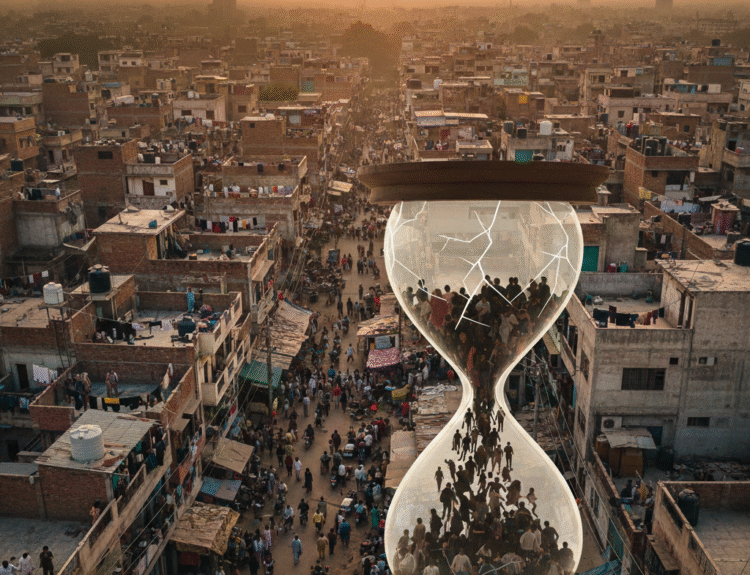
As the climate crisis intensifies, the world is witnessing an unprecedented wave of human displacement. Addressing this climate migration requires comprehensive strategies that prioritise human rights, sustainability and international cooperation.
According to the Internal Displacement Monitoring Centre, an estimated 30.7 million people were displaced by natural disasters in 2020 alone. This figure is expected to rise as climate change increases the frequency and intensity of such events. Low-lying coastal areas, small island nations and regions prone to drought and desertification are particularly vulnerable, with millions of people facing the prospect of permanent relocation.
Climate migration raises some of the most fundamental ethical and legal questions. While climate migrants are not like the conventional refugees who run away from conflict or persecution, they lack proper legal protection at the moment. The 1951 Refugee Convention does not include environmental factors as a basis for seeking asylum, and thus climate migrants are in a vulnerable legal position. This gap points to the importance of the development of an international legal regime that would cater for the needs of climate displaced populations.
Moreover, climate migration is most prevalent among the global population’s least privileged and responsible for emitting the least greenhouse gases. This situation brings forth some of the most pertinent ethical questions in terms of responsibility and justice. The developed countries that have contributed most to the emissions have to be at the forefront in funding climate change adaptation and offering safe refuge to displaced persons.
International organisations need to take the lead in efforts to address climate-induced migration. The UN, for example, in the Global Compact for Safe, Orderly and Regular Migration has started considering environmental aspects of migration. But stronger actions are required to guarantee that climate migrants will be protected and assisted properly.
Regional bodies can also play a crucial role. For example, the Pacific Islands Forum has advocated for regional agreements that facilitate the relocation of communities affected by rising sea levels. Such frameworks can serve as models for other regions facing similar challenges.
Climate migration is not something that can be solved by a single strategy, it has to be solved through adaptation and mitigation. Adaptation entails the strengthening of the ability of communities to cope with climate effects which, in effect, reduces the number of people who will have to be relocated. This can involve spending on physical capital, information systems and sound methods of farming. Whereas, adaptation deals with the effects of climate change and seeks to minimise the effects that are likely to be experienced in future. In this regard, there is a need for international cooperation where countries collaborate to meet the goals of the Paris Agreement. Therefore, by reducing emissions, the international society can prevent the long-term causes of climate migration.
At the heart of any approach to climate migration must be respect for human rights and human dignity. Displaced people and communities should not only be viewed as ‘victims’, but as agents with important experience and capabilities. Policies should enable them to be productive members of their new societies, and facilitate their assimilation into the society economically.
Climate migration is an urgent and complex challenge that demands immediate and coordinated action from the international community. As John Stuart Mill’s cautionary words remind us, empowering individuals and nations to address this crisis with creativity and determination is crucial. In navigating this new wave of global displacement, the path to our salvation lies in recognising our shared humanity and collective responsibility. Will the international community rise to the occasion, or will we allow the climate crisis to dwarf our common potential? The choices we make today will shape the future of millions and define the legacy of our generation.
—
The writer is pursuing M Phil in International Relations from Kinnaird College for Women, Lahore. E-mail her at amnahashmee@gmail.com




